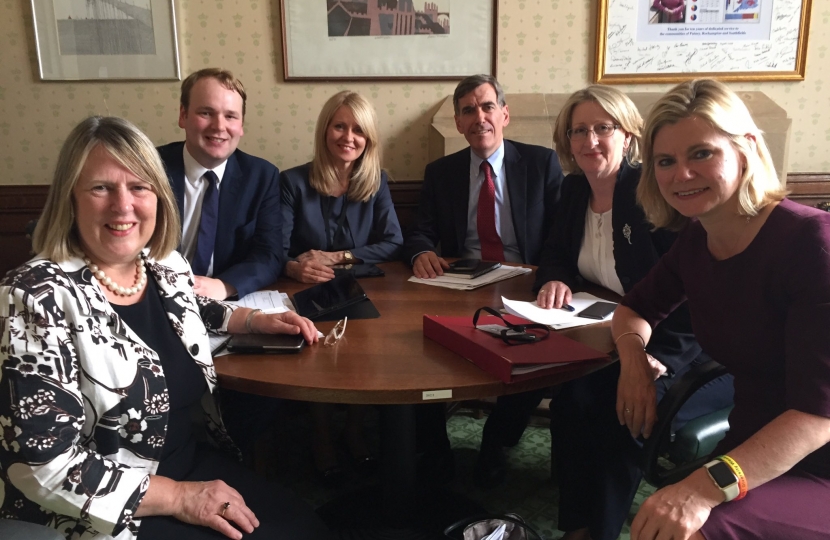
For too many years schools across our area have received less funding per pupil than the national average, and I have campaigned to end the historically unfair formula which placed Stockport in the lowest funded Local Authorities. Stockport is currently ranked 138th out of 150, in terms of funding for our local schools.
So, after raising the issue in Parliament and encouraging people to participate in the recent fairer funding consultation, I’m delighted that the Secretary of State for Education, Justine Greening MP, has announced extra funding for our schools to support the transition to a new national funding formula from 2018. This means that, from next year, an extra £1.3 billion per year will be added to school funding for the two years leading up to the next spending review.
The day after the announcement, I met with Justine Greening and other neighbouring MPs to discuss the benefits of this increased investment to schools in Cheadle. The Government is going to ensure that over the next two years, every secondary school will attract at least £4,800 per pupil, which represents a significant increase in funding across Stockport. This isn’t just a temporary solution either, as the Secretary of State has made clear that no school will lose any funding as a result of the new formula. In fact, the Government are going to go even further by providing a 0.5% per pupil cash increase for every school in 2018-19 and 2019-20, with underfunded schools seeing increases of up to 3% in both years.
In my view, it is right to prioritise core schools funding even as the Government continues the vital task of repairing the public finances. This increased investment in our schools will be funded in full from efficiencies and savings from within the Department for Education’s existing budget, and not from higher taxes or more debt.
It’s important that every penny in the education budget which can go directly to the front line does so, and I was delighted to get the news that another long standing unfairness is to be addressed. Year after year, North West schools have been paying excessive amounts for surface waste water rates compared to schools elsewhere in the country. This charge, which is mainly based on the size of the school’s playground and relates to the run-off of water into public drains, meant that North West schools were charged £27million, in contrast to schools in the South East which were charged £11million. After campaigning on this issue, raising it with the Prime Minister and pressing United Utilities for change, I was pleased to hear from United Utilities that a new, lower discretionary rate will be introduced from 2018, which will see money flow back to schools across the North West.
On both of these issues I’m pleased that local people, parents and teachers have had their voices heard, and I will continue to work to ensure that our children get the world-class education they deserve.
